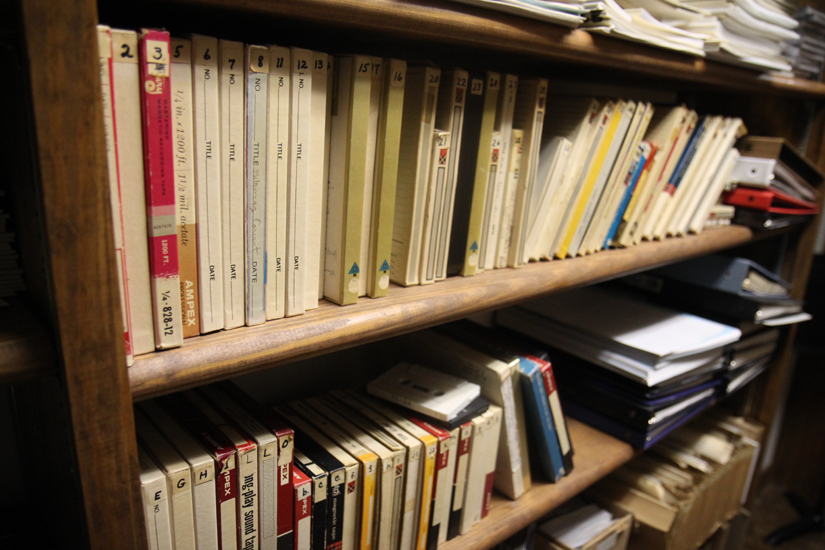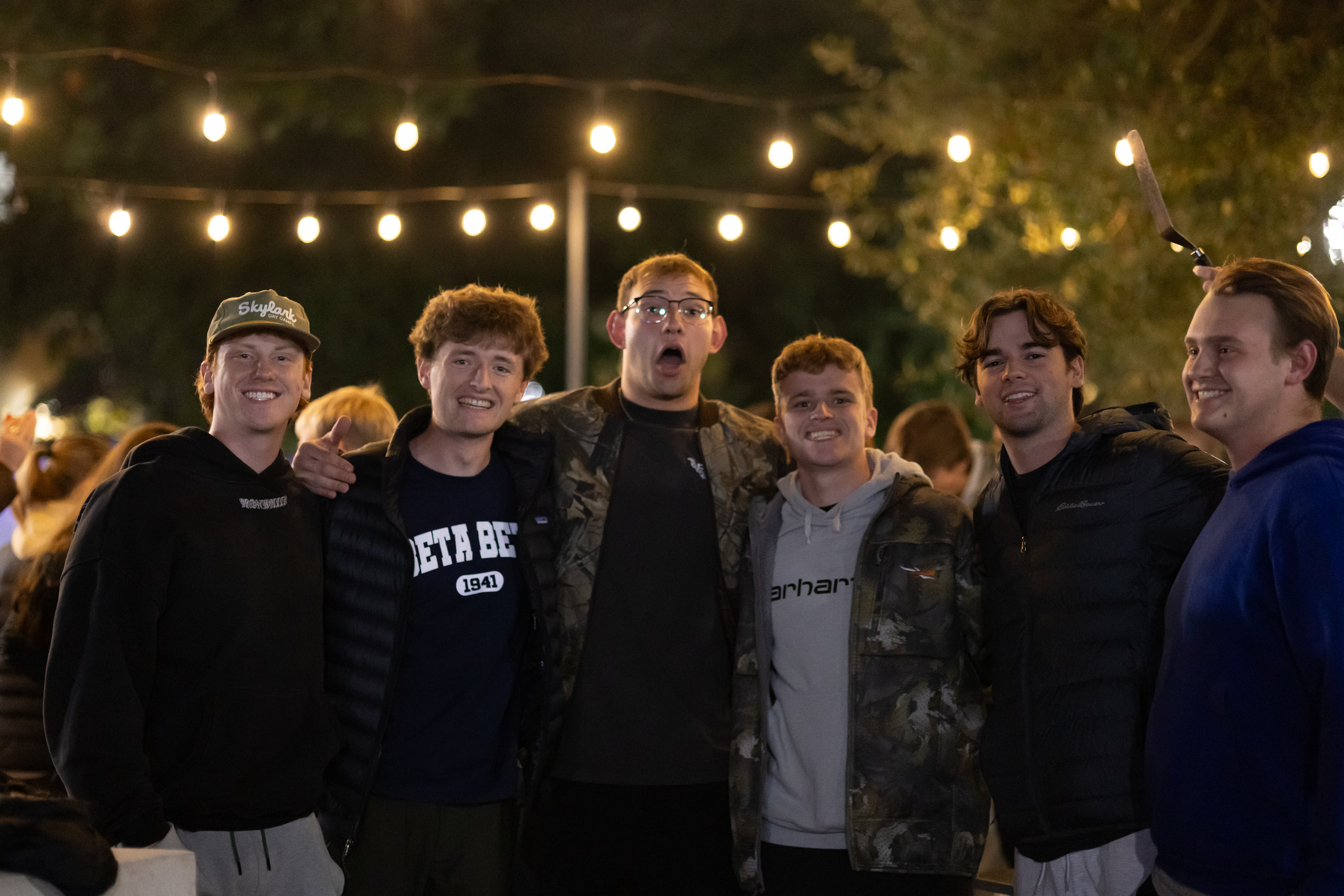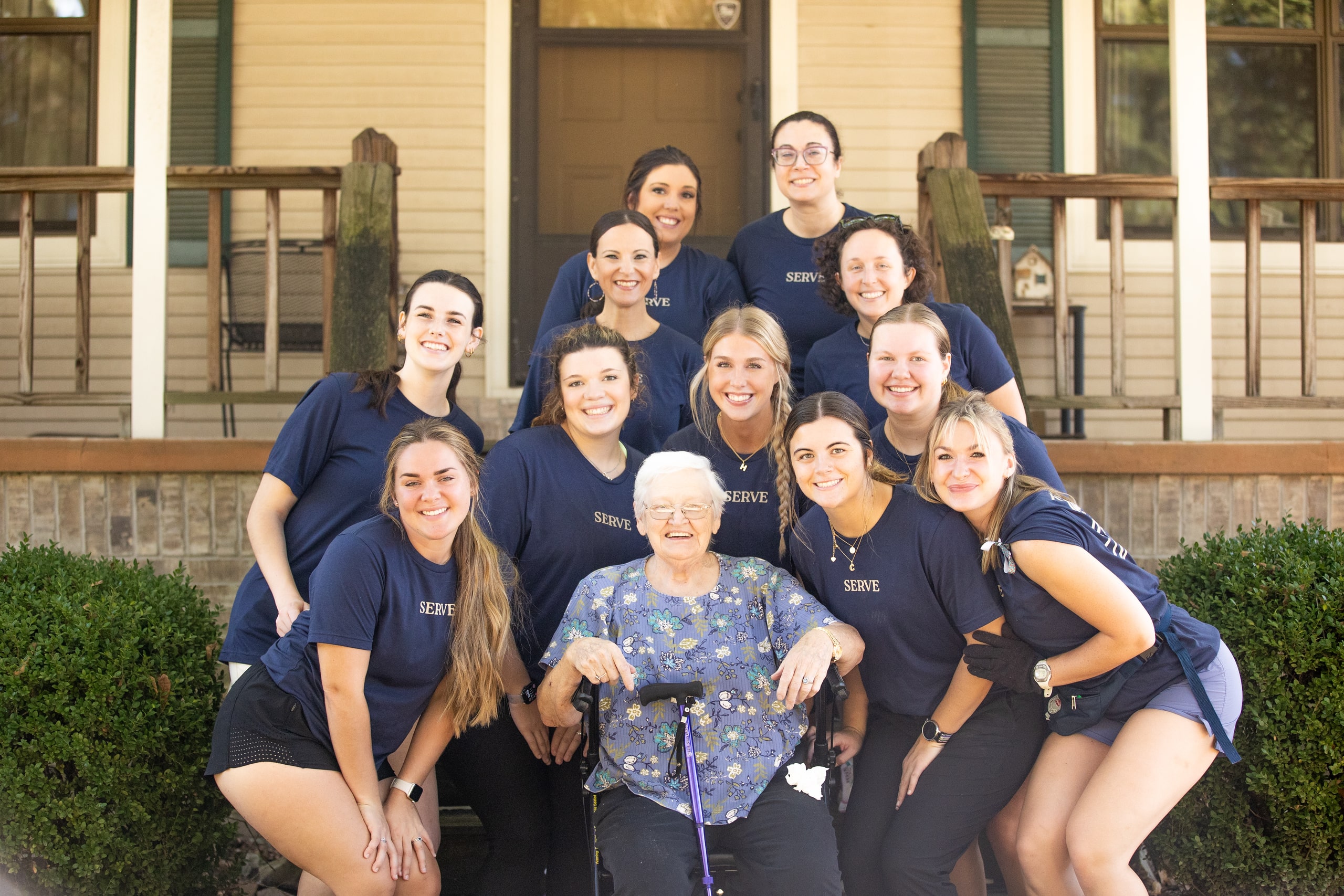It is not often that someone turns away the Smithsonian in favor of a small Baptist college in Arkansas. However, when it came time to decide the fate of musical giant and former professor Dr. William Francis McBeth’s manuscripts, notes and research materials, that was the choice he made. After McBeth passed away this year, a collection of materials concerning his life and work was donated to Ouachita’s archives so future students would be able to look not only at the work he produced, but also get a sense of the man it took to produce it.
“The significance of the collection is related to the great importance of Dr. McBeth as an American composer and as one of the most distinguished professors OBU ever had,” said Dr. George Keck, former chairman of the music division. “The materials wouldn’t be significant if not for McBeth’s importance in music.”
In his time, McBeth was one of the few serious composers who wanted to write music for bands. The popularity of televised collegiate football was growing and so was the demand for music composed for wind ensemble.
“When Dr. McBeth was in school, almost nobody who was composing was doing anything for bands,” said Dr. Ray Granade, professor of history and director of library services. “Mac was thoughtful about his music. He and his friends saw that this was almost virgin territory and decided to write band music.”
McBeth wrote music for America’s best collegiate bands, and many high school bands began to pick up his music. He quickly began to make a name for himself. Eventually, he was traveling around the world to conduct his music.
“People knew his name, and through his name, they knew Ouachita,” Granade said. “He didn’t use OBU as a rung on a ladder. He stayed here, and his music grew out of this environment. When it came time for him to retire, I approached him about the archives.”
Because McBeth had stayed at Ouachita and because Ouachita would allow access to future researchers that would not be allowed if it were at a larger institution, Granade suggested that McBeth donate his collection to the archives.
“We’re big enough to be able to take care of the collection but small enough to ensure it gets the kind of personal care it deserves,” Granade said. “I told him that because of all of these things, I thought his music should stay here.”
McBeth liked the idea, but it was never made official in his lifetime. After McBeth passed away, Granade approached his wife, Mary, about donating the collection to the archives.
“Mrs. McBeth had helped him publish a lot of his music, so it was probably very difficult to part with some of the stuff,” Granade said. “I talked to her and told her that before Mac had retired, he had agreed with the idea.”
The transcripts of the music McBeth had composed were the key elements of the collection, but they had to decide what else to include. McBeth also had a collection of books about composing, as well as other personal items that might be able to give researchers a better look at who he was as a person.
“We inventoried all of his books and had a photographer come in and take pictures of the inside of his trophy room,” Granade said.
The trophy room was where McBeth kept his various collections of things he was interested in, such as saddles, knives, old guns and other artifacts from the old west and Native American culture. Then, there were the objects related more directly to his career.
“The collection includes the pens that he used when transcribing his work, bottles of India ink, his baton, lots of pictures, certificates of honor and the books that he wrote,” Keck said.
When McBeth passed away, the Smithsonian was immediately interested in these artifacts from his life and career. However, McBeth’s family and friends decided Ouachita would be the best place for them.
“Institutions have character, just like people,” Granade said. “I don’t want Ouachita’s history to just be about who was president at what time and when the buildings were built. I want people to know the soul of the university, and collections like McBeth’s can show them that.”
Picture by Nicole McPhate.













